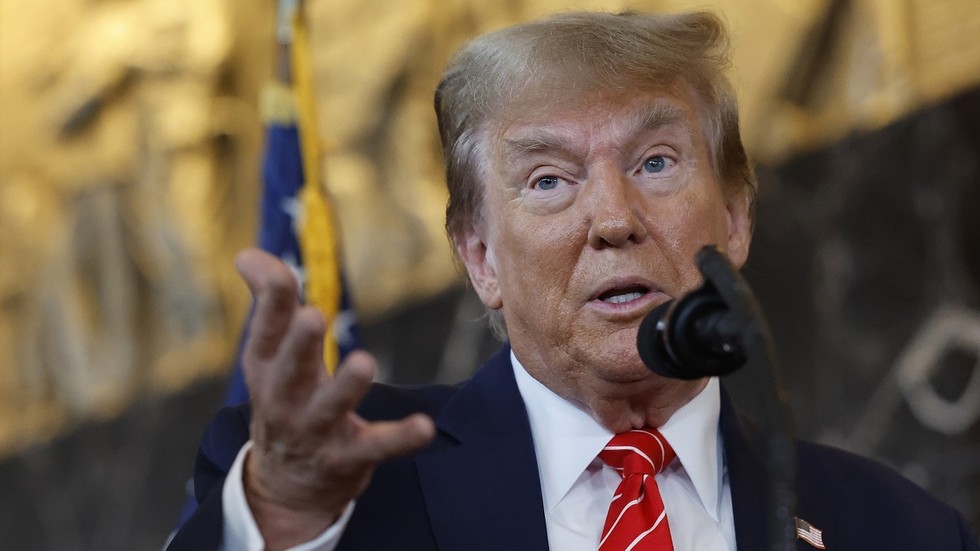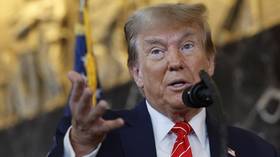
Brussels is reportedly conducting an assessment of potential economic damage, should the Republican return to the White House

FILE PHOTO: Republican presidential candidate and former US President Donald Trump. © Chip Somodevilla / Getty Images
The EU is bracing itself for a possible trade war with the US if Donald Trump wins the presidential election in November, Bloomberg reported on Wednesday, citing an anonymous official within the bloc.
The European Commission is working on a formal economic assessment of how a Trump victory would impact member states, the source told the business news agency, without offering details of Brussels’ potential response.
In a separate article based on interviews with Trump campaign insiders, Bloomberg reported that his administration would impose a minimum 10% tariff on imports from the EU, the same as for China.
Another proposal involves retaliation for the taxes imposed by Brussels on digital services in the past several years, which have targeted US-based tech giants such as Meta and Amazon. The counteraction would be launched under provisions in the Trade Act of 1974, which Trump deployed during his first term to address trade imbalances with foreign nations, sources explained.

Read more
The Trump presidency locked horns with the EU over a US trade deficit and what he perceived as European reluctance to side with Washington against China. The tariffs imposed by Trump on European steel and aluminum were only partially walked back by the administration of President Joe Biden last year. European officials are hesitant to fight back despite considering the measures unfair “due to concerns that it could help Trump’s election chances,” Bloomberg noted.
Biden is perceived as less antagonistic than Trump in EU capitals. In a rare remark on US domestic politics last May, German Chancellor Olaf Scholz publicly expressed his preference for the Democrat to remain in office.
However, some of Biden’s policies have upset the Europeans, the outlet said, particularly the $390 billion subsidy program to support green technology packed into the 2022 Inflation Reduction Act. The money offered incentives to European manufacturers to move production to the US.
READ MORE: Biden’s LNG ban dangerous for industry’s future – energy bosses
At the time, the bloc’s members were struggling to adjust to spiking energy prices following the self-imposed decoupling from cheap Russian sources. More expensive American liquified natural gas has replaced most of the share previously held by Russian supplies.




